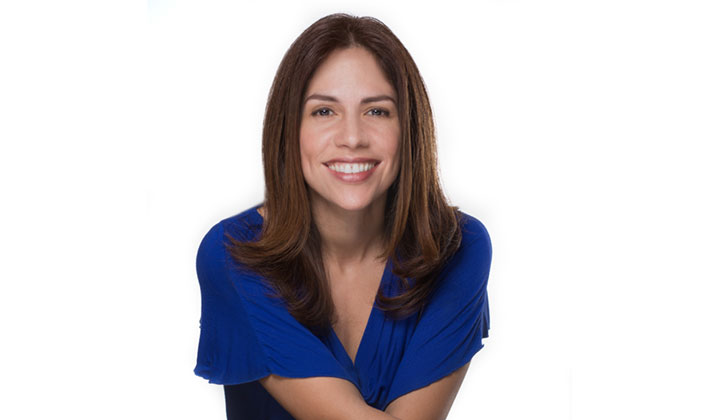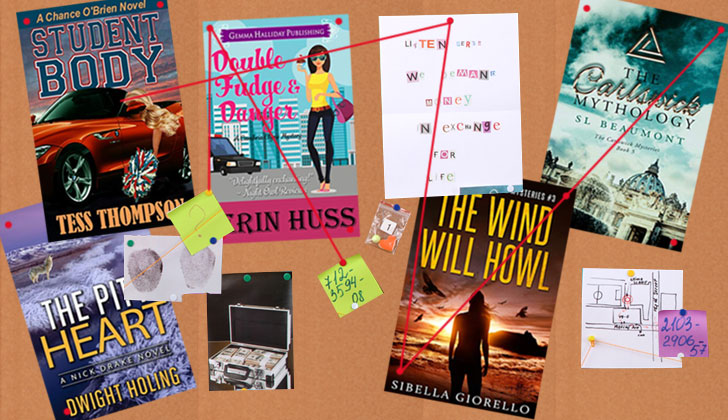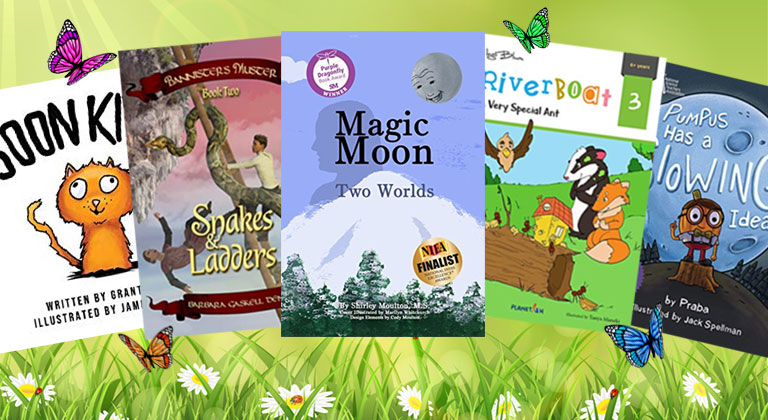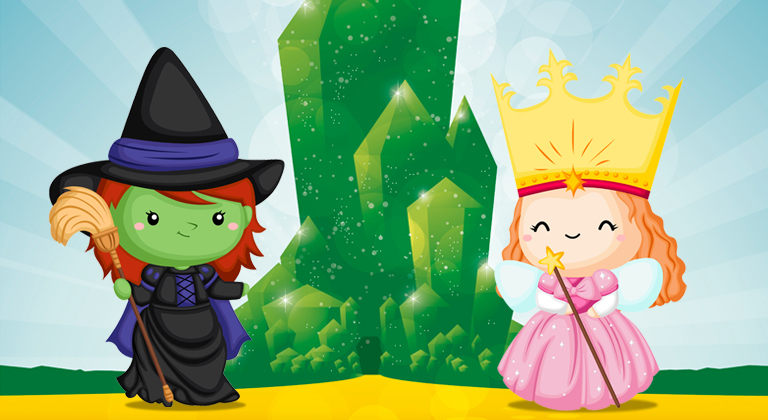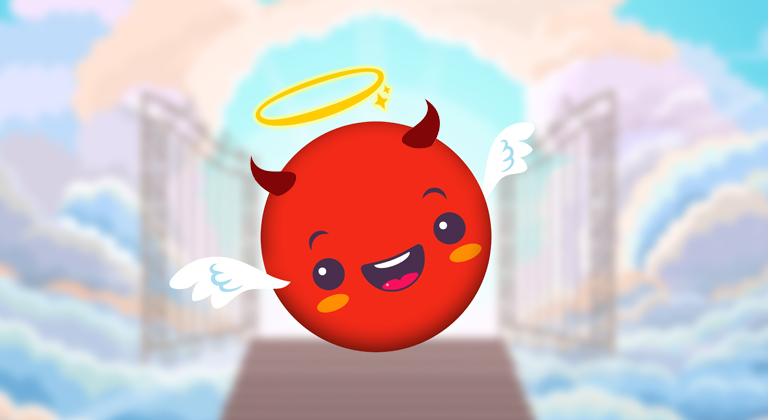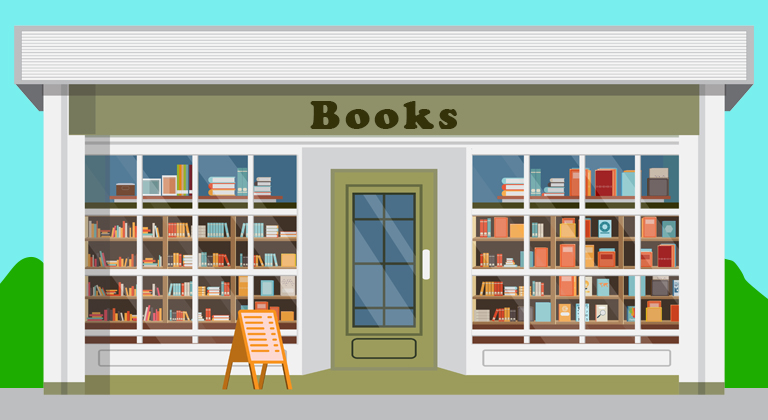Author Spotlight Interview: D Pichardo-Johansson
In our continuing series of author interviews, we got to chat to the incredible D Pichardo-Johansson – who balances a career as a board certified physician and a successful career as the romance novelist behind popular titles like Faith is Fearless and Just For Joy. We were thrilled to learn more about her incredible story, and share it with you here.

HG: Perhaps the best way to begin this interview is with D Pichardo-Johansson’s own words – from the email in which we first asked her to be interviewed. Here’s how she described herself:
DPJ: I’m a physician. I started writing mystery (how to murder someone and leave them with a negative autopsy) but soon realized that my favorite part of writing a story was not the mystery, but crafting a connection between unique characters. I now focus more on romance. I truly believe in romance and happily-ever-afters, because I found my soulmate against all prognoses later in life. I’m also a mother of four, including twins with special needs, and an immigrant from one of the craziest Third World countries in the world.
To all that I now also add one more badge of honor: I’m a cancer survivor just finishing chemotherapy. But don’t let that mislead you; I don’t write sad stories. The goal of every novel I write is to dwell on the joy and beauty of life and leave the reader with a pleasant after-taste of laughter and hope.
I’m originally from the Dominican Republic, but have been living in the US now for over 20 years. After seven years living in the freezing Midwest (first Detroit and then Chicago, where I did Medical training) I moved to Central Florida in 2005. How I describe myself? Should I give you the airbrushed, interview-appropriate, picture-perfect version or should I give you the secret dark truth?
HG: Always secret dark truth! I’m even more intrigued now!
DPJ: Well, off the record the secret dark truth is that half the time I feel like a six-year-old pretending to be a grown up, and the rest of the time I feel like a nerdy Alien pretending to be a normal human! But the real truth is that how do I describe myself depends on what time of the day you ask me. Sometimes I’m a mother of four pretending to be a doctor. Sometimes I’m a doctor pretending to be a mom. Most of the time lately I’m a mom and doctor “pretending to be an author” and lately I’m a cancer patient pretending to be an oncologist.
HG: So let’s start with the “Dr.” bit. YOU’RE A DOCTOR! That’s amazing.
DPJ: Yup (is not that amazing, trust me). I’m a Board Certified Hematologist-Oncologist (a doctor specialized in blood disorders and cancer).
HG: When did you first get the idea to write?
DJP: I’ve been making up stories in my mind since age six. I used to go to bed and stare at the ceiling and make up alternative endings for the cartoons I watched. At age 8 my mother gave me a journal for Christmas and I started writing intermittently, mostly relating events of my day and occasionally childish attempts at poetry. In my teenage years I drafted a couple of stories but never got to finish them.
But then I got into serious life. I was a precocious student and was in college since age 16. From there to medical school, to internal medicine residency, tp hematology-oncology fellow (intermixing that with children) I quit writing for years.
Then about ten years ago I entered a critical moment in my life. My former marriage was in crisis at the same time that my former job was collapsing and my twin girl (then only one) was going through serious health issues (seizures and a feeding tube along with her diagnosis of developmental delays). Just as I was starting to recover from that dark hour, one day a story jumped in my mind (literally). It was the book that now is called “Beyond Physical” (back then it had a different name). All the characters and pieces o the story rushed into my mind out of the blue in the middle of a store and haunted me for days after that until I surrendered and started writing it. A murder committed in a medical way to leave the victim with a negative autopsy. An undercover FBI agent investigating the victim’s widow. And that widow, a doctor that mixed the practice of medicine with spiritual support for her patients.
It was like being on drugs that make you high (I imagine). I couldn’t stop writing, even if that implied getting up at three in the morning. That kept me going through the darkest time of my life and I even started the process of publishing that book. But the small publishing company I was working with at the time went out of business. Shortly after, I met my current husband and got side-tracked and that book stayed filed for about six years.
HG: Oh wow, you described all that so viscerally!
DPJ: I think that being visceral/passionate comes with being Latin!
The end of the story is that about 3-4 years ago, at another critical moment in my life regarding my career, the “demon” of writing possessed me again. I wrote six book drafts in two years. But like my husband (a Literature professor and former writer) says: You first have to put about a million words of garbage on the page before you can write anything good.
So in the past couple of years, now with about a million words on the page, what I’ve been doing is taking those stories one by one and re-writing them almost entirely. I take whatever worked from them (usually the characters and main idea) and then reverse-engineer structure into them, and then fill in the holes with new inspiration.
HG: Tell me, what’s your writing schedule? Do you have a routine?
DPJ: My routines vary depending on whether the kids are with me or visiting their dad (my ex). But basically, I get up at around 5:00 AM to squeeze in some writing before work. Then I usually squeeze some writing during my lunch break, and then some more at the end of the work day before heading home. I often finish seeing patients at around 3:30 PM, but then have to stay at the office “babysitting” the patients who are still in the infusion room with the nurses, getting their chemo. So that gives me a couple more hours to write or edit.
The peak of my inspiration is the morning, when my coffee is just kicking in and I’m rested after a night sleep.If I can squeeze in a beach walk even better. Then in the afternoons and evenings (if I get to do something before bed) I’m less inspired to write new material, but more critical to what I already wrote and better at editing.
HG: Do you have a writing area set up? What do you write on/with?
DPJ: My trusty companion is my MacBook Air laptop. I don’t have one designated writing area. My morning writing usually happens on the kitchen breakfast counter or my sectional. My afternoon writing happens on my desk at work and my evening writing/editing happens in bed.
HG: Do you have any routine or ritual? You mentioned the coffee!
DPJ: My ideal day routine is sipping on my coffee while I write (not black coffee, I like cream and Splenda/stevia in it). That gets me going for the first hour or two. Then I take a break for a beach walk at the sunrise. The multi-sensory experience of the ocean always re-boosts my ideas. By the time I get back to the house, I’m usually re-inspired. If I’m lucky and it’s a weekend or day off, I write for a couple more hours. In work days I have to put those ideas on hold until the next chance I have to sit with my laptop, either my lunch break or a patient’s cancellation.
HG: Do you ever struggle balancing your career and writing AND family?
DPJ: Haha, very funny. Who doesn’t?
My biggest challenge with that right now is that my kids and husband get jealous of any time I spend writing. My 11-year-old boy is usually lost in his iPad and ignoring me all day, but the second I get the laptop out and try to write he suddenly feels the strong need for mom’s attention.
As I mentioned before, I get up extra early (5:00 AM) and try to write before my family wakes up, but no matter how early I get up, and my 11-year-old boy “smells” I’m awake and goes to sit next to me at the kitchen counter, and babbles non stop asking me cute questions.
My hubby also gets a sudden hunger for wife’s conversation when he sees the laptop out. And I smile inwardly because it makes no sense to try to write about a fake romance hero when I have a real flesh and blood romance hero sitting next to me, wanting my attention.
HG: Awwww, flesh and blood hero. I’m not sure my wife thinks of me that way, lol!
DPJ: I’m sure she does. Sometimes we forget to say things aloud to our loved ones. Even if we are thinking them.
HG: What’s the best writing advice you’ve ever received?
DPJ: “Just keep writing.” When I’m unhappy with the quality of my writing, when I despair about not selling enough, when I feel intimidated about marketing. “Just keep writing.”
I also got a great piece of advice from my husband about crafting characters I never forgot. He told me “No matter how evil your villain is, always put something good in them, and no matter how good your hero/heroine is, always give them at least a flaw.” That has really helped me humanize my characters.
HG: So one of the most incredible things about your career as a novelist – even about the beautiful way you’ve described things in this interview – is that English isn’t your first language. How did you become so adept at writing in English?
DPJ: In my household we have endless stories about my accent. My husband is American, my children were born here and English is their first language (unfortunately they barely know Spanish). So there are funny stories about them correcting my English pronunciation practically since they were babies.
My youngest boy was something like three or four when he pointed out that I try to say “This” I pronounce it “These.” Since then, every time he noticed a Hispanic accent on someone he would say “Look! They talk like Mommy. They talk like ‘these’ ”
But my immigrant stories go beyond the accent and are too long for this interview. In one of my blog posts about feeling like a space Alien I mention the shock on my first patient’s face when I greeted them with a hug and a kiss (Latin style) not realizing people here in the US don’t do that!
Most of my medical training was done here in the US, in English. I even took English writing classes during my Masters in Clinical Investigation at Northwestern University—but those were classes to write for the Medical Literature. (As a medical resident and fellow, you have to publish some articles in medical journals). Still, my creative writing and journaling was still happening in Spanish until that “Dark Night of the Soul” I mentioned before (my job/marriage crisis combined with my daughter’s health issues).
I realized back then that when I journaled or wrote in Spanish I did it from a less mature, more wounded part of myself, still susceptible to the oppression mentality of a Third World country and the mind blocks of a severe religious upbringing. Surprisingly, when journaling in English, it was easier for me to embrace the strong-independent-woman archetype I always admired in American women. That’s why I switched to writing in English. It hasn’t been an easy journey. My first books needed HEAVY editing (English prepositions elude me and I will never get them right). And even now, I make sure to have three eyes run through my books: My beta reader/developmental editor, my line editor and a different proofreader, to make sure no grammar issues went uncorrected.
HG: In our initial email conversations, you mentioned “the first naked man I saw in my life was a cadaver.” Care to share a little about that, lol?
DJP: Haha. That’s too long – but you can read about it on my blog. Sometimes on my blog posts I’d tell some of those stories as an example to the readers that we all have to overcome fear (and that even if I wasn’t scared of corpses and skeletons, I was still scared of going out on the world of dating after my divorce).
For example, “The Naked Man” starts with, “The first naked man I saw in my life was a cadaver.” It tells the real story of the day I, (back then a sixteen-year-old college freshman), sneaked into the anatomy lab with a few friends and convinced the lab janitor to let us see the teaching cadavers. I was trying to figure out if I’d have the stomach to go to medical school, and succeeded. I walked out of there pondering on deep life-and-death issues, quite serious for my age. However, my conservative Catholic family was more shocked by the fact that I had seen a NAKED man (the corpse) than they were about my deep epiphanies!
The topic of my blog for the past year and a half was “Finding Love against all prognoses.” I’d married very young to the first and only man I’d ever kissed, so I was terrified of facing the modern world of dating after my divorce. In addition to the lack of experience dating, and the taboos that come with a conservative upbringing I had, the odds of me finding love were very low. First, I was a mother of FOUR children, including a kid with serious special needs. Second, I was living in “The middle of Nowhere, Florida” (I still live there!) where most of the male population is elderly. And Third, I was a doctor, AKA, many men were intimidated or had a chip on their shoulder about dating me. So everybody assumed I’d never find love again. Each blog post was a short story about my process of healing after my divorce and finding my now-husband soulmate. The message was “If I could find love ANYBODY can.”
HG: So, why do you think your books resonate with readers?
DJP: I think it’s because I TRULY BELIEVE in mind-blowing romantic love, and it’s easy for me to bring it to the page—because I have lived it. In my romance, I like to write about Real Love. Not infatuation or lust arising instantly between two “perfect” people—but the slow-boiling combination of physical, emotional and soul chemistry between two imperfect people that complement each other.
HG: You describe everything SO beautifully. Okay, so you sound like Husband #2 is a match made in heaven. Can I ask what’s different and what it all taught you about love?
DJP: What is different with husband #2? Well, for starters, I’m no longer a nineteen-year-old. I can have a better relationship and a more mature partner because I myself have grown and matured. The person we attract in our lives will always match our level of spiritual and intellectual growth. If someone wants a better partner, they should start by becoming a better person.
I know myself better, therefore, I know better what I want and need in my life. I can have better boundaries and be lower-maintenance. I’d say that’s the very first lesson I learned about love: You don’t wait for love (or a partner) to come into your life and fix your problems and make you happy: You start by taking care of your problems alone and being happy by yourself.
The second big lesson I learned, and I often sneak into my books, is that you can’t choose a partner relying on an intellectual “check list.” A partner either “feels right” or not. And when you know, you know. When I chose my first husband I had a very clear list of things I wanted in a partner and included someone from my same culture, who spoke Spanish, who was my same religion, my same political party, who was involved in the medical field “so he could understand my life”…But I shouldn’t have been looking for those “surrogate markers” and instead should’ve been looking for someone who resonated with my soul.
On the surface we were very similar, but at the deep levels our essences were completely different. My current husband fulfilled none of my original criteria. He’s American, English speaker, had a completely different upbringing, different religion (he’s Buddhist), has nothing to do with medicine (Thank God!—He’s a College professor). However, at the deep level we share a similar vision of life and the same joyful nature. And we had undeniable emotional and intellectual chemistry from the beginning. My soul just “remembered him” from somewhere.


